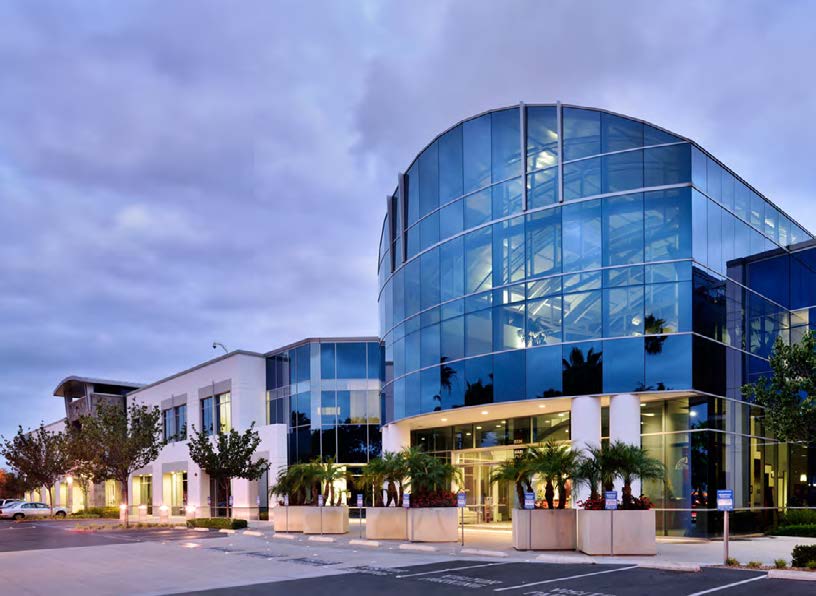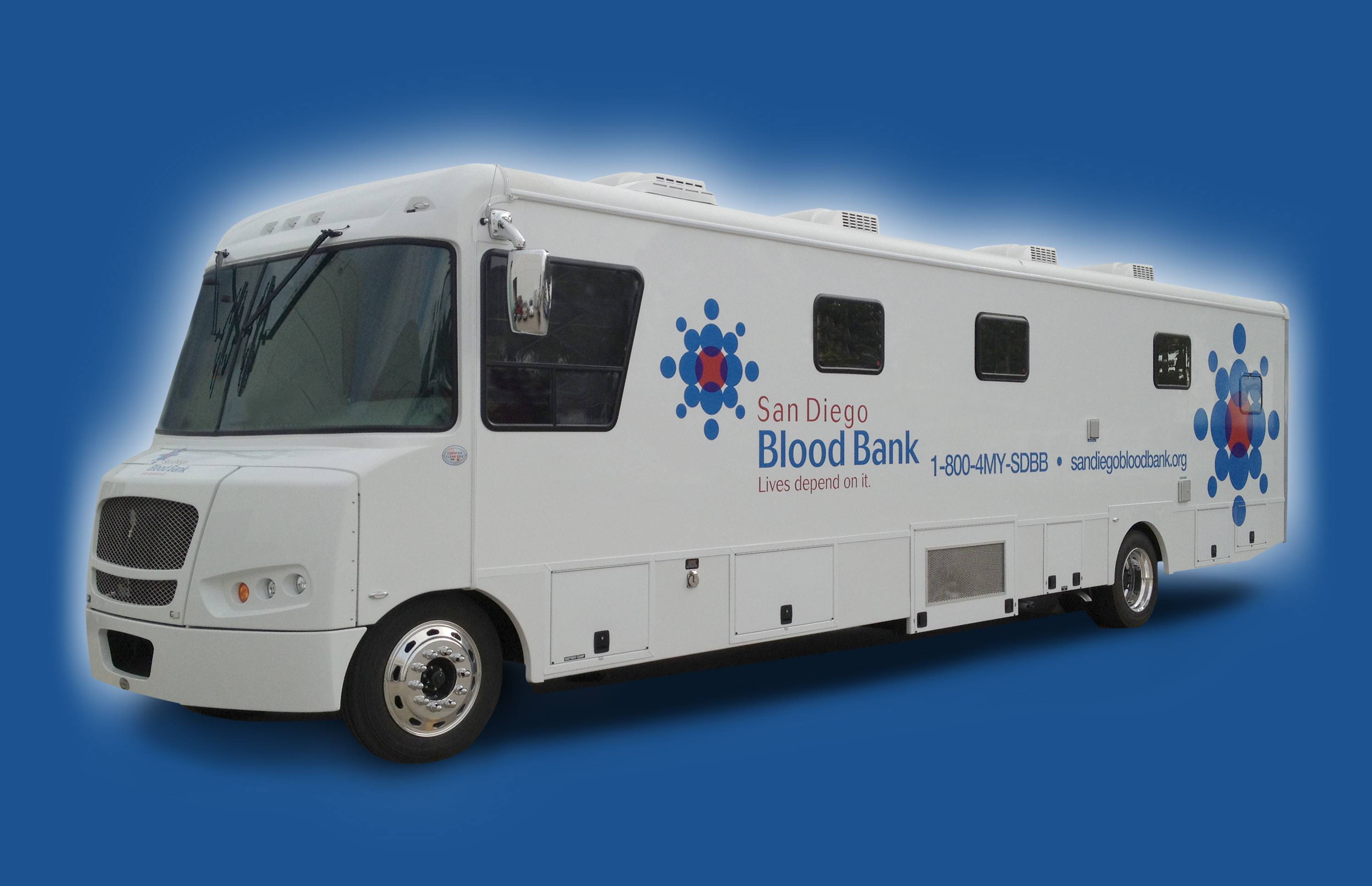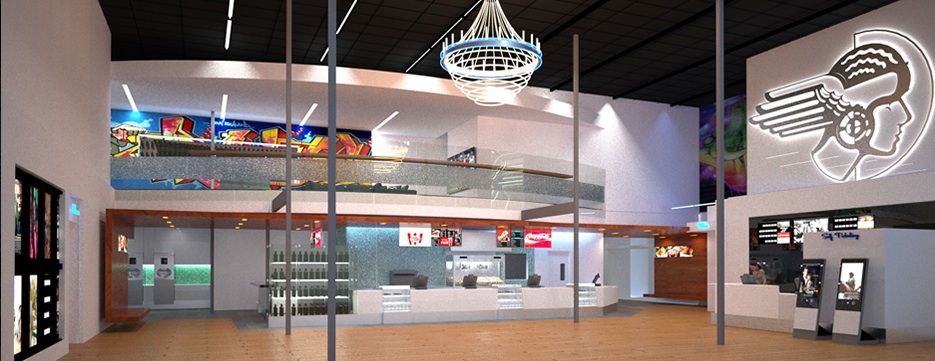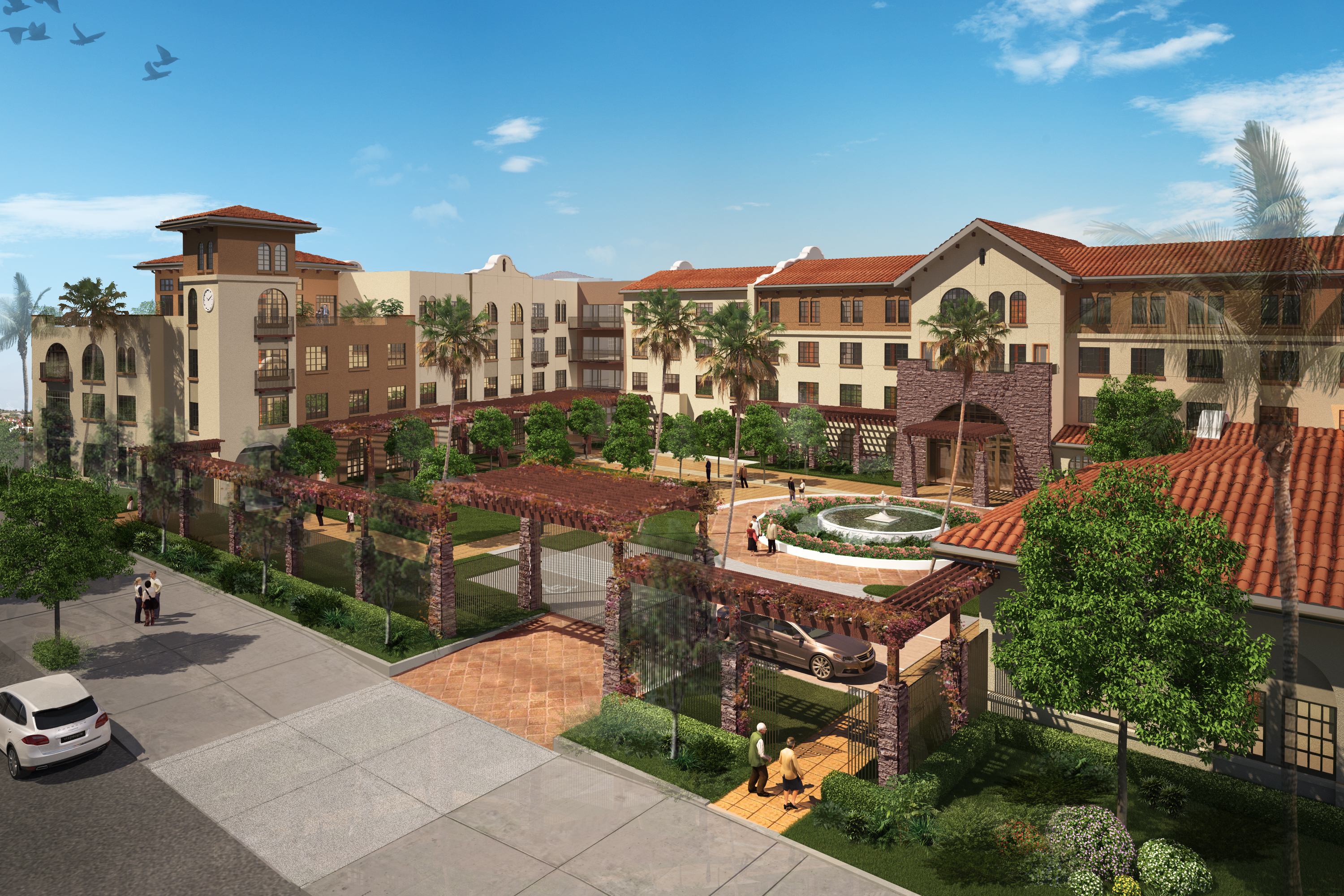Daily Business Report-May 12, 2015
The $43 million St. Paul’s Plaza in Chula Vista, as it would look when fully built out. (Rendering by St. Paul’s Senior Services)
Seniors to Live a Cruise-Ship Life
In the $43 Million St. Paul’s Plaza
Like living on a cruise ship that never leaves port.
That’s how staff of St. Paul’s Senior Services (formerly St. Paul’s Senior Homes & Services) interpreted comments from a committee of Chula Vista residents who told them what the seniors of today want in a retirement community.
The result is the $43 million St. Paul’s Plaza development now under construction on 4.5 acres of land in the Otay Ranch area of Chula Vista.
Developed in phases, the four-story complex and grounds will have a multitude of amenities — not unlike a cruise ship:
• Numerous solariums and sundecks with views.
• Gourmet restaurant.
• Event room seating 150.
• A pub hosting happy hour and sports games.
• Non-denominal chapel.
• Reflection room.
• Beauty salon, barber shop and massage room.
• Indoor therapy pool.
• Dog park.
• Gymnasium and dance studio.
• Entertainment schedule, including music and animal therapy.
The Plaza will house 156 apartments in Phase 1. Another 63 apartments will be added in Phase II.
The new community will also bring 60 Memory Care apartments and 94 assisted and independent living accomodations.
Opening of St. Paul’s Plaza is set for June 2. Residents will start moving in during that week.
According to a fact sheet on the Plaza, large studios in the complex will be priced at $2,700 a month and includes 30 meals, linens, towels and house cleaning. The Memory Care wing is designed to provide a home-like living experience.
St. Paul’s Senior Homes & Services was rebranded to become St. Paul’s Senior Services to reflect the 55-year-old nonprofit organization’s expanding role in San Diego. It is the largest nonprofit senior care organization in San Diego.
The organization also operates several other facilities for seniors, including St. Paul’s Manor (residential living); St. Paul’s John A. McColl Family Health Care Center (skilled nursing); St. Paul’s Villa (assisted living); St. Paul’s Intergenerational Program (senior day care); and St. Paul’s Program of All-Inclusive Care for the Elderly (PACE).
St. Paul’s has made major renovations to St Paul’s Villa and Memory Care facilities (located in Banker’s Hill), and has plans to develop the entire block that its three buildings encompass and make a senior complex in the future.

Spectrum Corporate Center Sold for $61 Million
The Spectrum Corporate Center in Kearny Mesa has been sold for $61 million to Drawbridge Realty Trust. The seller was IVG Institutional Funds GMBH.
The Class A office development has three buildings — 9326-9356 Spectrum Center Blvd. and 4830 Ruffin Road — totaling 182,870 square feet on 9.88 acres. The property is currently fully leased through April 2020 to Northrop Grumman Systems Corp., an aerospace and defense technology company. Northrop Grumman has occupied the property since it was built in 2005.
Cushman & Wakefield represented the seller.
Cushman & Wakefield and DTZ to Merge
Cushman & Wakefield and DTZ, two of the largest real estate services companies with a heavy presence in San Diego, have reached a definitive agreement to merge and are set to become a global giant.
The new company, which will operate under the Cushman & Wakefield brand, will have revenues over $5.5 billion, over 43,000 employees and will manage more than 4 billion square feet globally on behalf of institutional, corporate and private clients. The expanded full-service offering will provide a unique combination of deep, local market presence with significant scale in core services in the major global markets.
“DTZ is elated to be merging under the prominent Cushman & Wakefield brand,” said Brett White, who will assume the role of chairman and chief executive officer of the combined ompany. “The companies have remarkably complementary skills and reach in different geographies — whether in New York, London or Shanghai, this will be a formidable combination.”

San Diego Blood Bank to Launch
New $258,000 Blood Mobile
The San Diego Blood Bank will celebrate the launch of its newest blood mobile with a ribbon cutting ceremony at 10 a.m. Wednesday at Rady Children’s Hospital-San Diego, 3020 Children’s Way, San Diego.
Fundraising efforts took about one year for the new vehicle, costing $258,000. It is replacing a 1995 model with 151,000 miles. “Literally, thousands of donors from every area of San Diego County have made a donation on that bus, but the time has come to replace it,” said David Wellis, SDBB CEO.
Major donors for the new blood mobile included Las Patronas, Henry L. Guenther Foundation, JP Martin Foundation and Grossmont Healthcare District. Representatives from these organizations are expected to attend the ribbon cutting ceremony.
The new 40-foot-long blood mobile, with an expected life of about 15 years, is built on a Freightliner model MT-55 chassis. Its 6.7 Cummings turbo diesel engine is compliant with California Air Resources Board (CARB) tier level 4 standards. The eight-bed interior is designed by La Boit Specialty Vehicles.
San Diego Blood Bank officials said its fleet of nine blood mobiles account for nearly half of all blood donations collected throughout the region at a variety of San Diego County locations. The blood bank also operates six local donor centers in the county.

Salk Discovery Could Help
In Future Autism Treatment
Scientists at the Salk Institute have discovered that the development of neurons — which are responsible for specific tasks in the brain — is much more flexible than previously believed.
By studying sensory neurons in mice, the Salk team found that the malfunction of a single molecule can prompt the neuron to make a switch in its development, changing a neuron originally destined to process sound or touch, for example, to instead process vision.
The finding, reported Monday in the Proceedings of the National Academy of Sciences, will help neuroscientists better understand how brain architecture is molecularly encoded and how it can become miswired. It may also point to ways to prevent or treat human disorders such as autism that feature substantial brain structure abnormalities.
Board of Supervisors Allege
Dave Roberts Violated Brown Act
San Diego County supervisors alleged Monday that one of their own violated the state’s open meeting law and should be liable for any litigation that arises from a series of resignations that have beset his office.
In a statement, the Board of Supervisors said Dave Roberts, the freshman representative of the North County coastal area, revealed a 5-0 vote by the board to deny severance payments to two of his former staffers — a violation of the Brown Act.
In a separate statement, Roberts said he was only responding to direct questions from his predecessor, Supervisor Pam Slater-Price, and did not realized he was in violation of the law.
“I now understand that I should not have responded,” he said. “I am human, I made a mistake and I apologize.”
DA Supports Eliminating Some
Jury Trials for Misdemeanors
The San Diego County District Attorney’s Office is backing state legislation that would give prosecutors the sole discretion to charge and prosecute infractions in place of many low-level misdemeanors that are currently subject to sentences of less than six months in jail.
SB 617, authored by Sen. Marty Block, D-San Diego, would hold offenders accountable while avoiding the costs associated with protracted court involvement — jury trials, attorney representation, confinement and probation involvement — because it does not apply to infractions, according to its supporters.
Cases that involve firearms, sex-offender registration, child abuse, elder abuse, DUI, domestic violence and sex offenses would not be eligible.
SB 617 is consistent with the goals of AB 109 (Public Safety Realignment) and Proposition 47, according to District Attorney Bonnie Dumanis.
“This bill ensures that only those offenders who belong in the criminal justice system are introduced to it and steers minor offenders away from the system and the stigma associated with it,” Dumanis said. “By alternatively charging infractions, minor offenders will still be held accountable for their actions but taxpayers won’t be paying for costly jury trials.”
The proposed bill will be presented to the Senate Public Safety Committee today.
— City News Service
Chargers Make $3.3 Million Profit
Rather Than Pay $23 Million in Rent
The San Diego Chargers were paid nearly $3.3 million by the city to play at Qualcomm Stadium from 2006 through 2013, thanks to rent credits and reimbursements from a settlement that made the stadium compliant with the Americans with Disabilities Act, the Associated Press reports.
Without the ADA settlement and rent credits, the Chargers would have owed the city nearly $23 million during that span, according to figures provided by the city.
Final figures for the 2014 season haven’t been calculated. Rather than pay $3 million rent, the Chargers likely will make around $250,000, according to city estimates.
Timken Museum Hires General Manager

The Timken Museum in Balboa Park has appointed Megan Pogue as its first general manager. Pogue was a vice president of the San Diego Symphony.
“Megan’s strong leadership, commitment to the arts and in-depth knowledge of the San Diego community provides the opportunity for a new direction for Timken Museum of Art,” said Tim Zinn, president of the Timken’s board of directors, in a statement.
Pogue was with the San Diego Symphony for 11 years, holding the position of vice president of business development.

Angelika Film Center & Café to Open
In Carmel Mountain Plaza in Summer
The Angelika Film Center & Cafe, a state-of-the-art boutique cinema, is coming to the Carmel Mountain Plaza in San Diego. Scheduled to open late summer of 2015, this will be the first Angelika on the West Coast.
the announcement said Angelika Film Center will be dedicated to offering its guests provocative and engaging film programming — from independent, foreign and specialty film to the best commercial film from the major studios — all in a luxurious, state-of-the-art theatrical environment.
The original Angelika Film Center was launched in New York City in 1989.
Each of the 12 auditoriums at the new Angelika will feature full VIP luxury recliner seats in a stadium setting, expansive wall-to-wall screens and digital projection by Barco, a leader in digital cinema technology.
Fred Dagdagan, a Los Angeles-based designer of screening rooms for major Hollywood studios, has designed the cinema, which will include a three-tiered crystal chandelier accented in blue neon and an illuminated rendering of the Angelika logo.
Before, during or after their film, guests will be offered a menu of craft beverages and bites curated by Food Network executive Bruce Seidel and chef Santos Loo, both currently with Hot Lemon Productions. Each dish can be paired with a craft beer or select wine.




